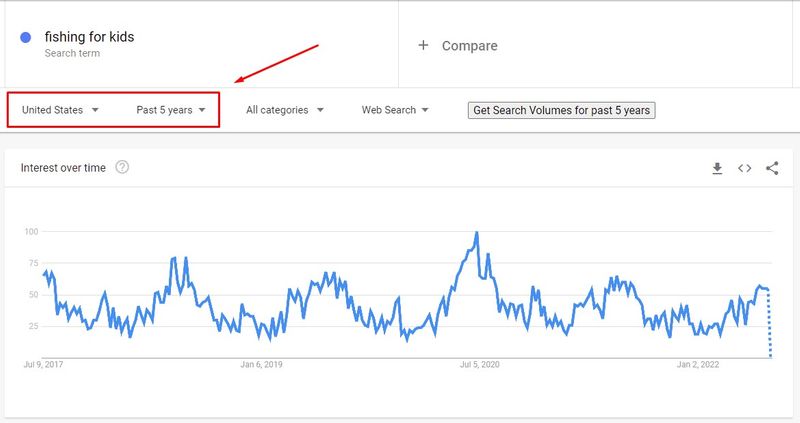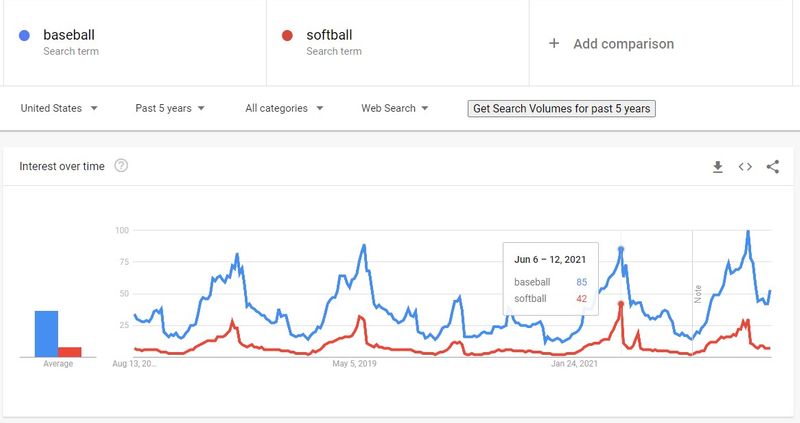Choosing a niche for your first affiliate blog is hard.
It’s often the first roadblock beginners encounter and you might get so “paralyzed” that it could even stop you from starting altogether.
It may feel like you don’t have much to contribute to the Internet or perhaps you’re worried if your niche is not profitable and you’d be just wasting time.
You’re not alone.
I used to battle with these same thoughts when I got started.
And now that I’ve been in this game for over 4 years, I’d like to give you some actionable advice so you can get started in your niche with confidence.
If there is one thing I want you to know;
Niches are not set in stone once you pick one.
There’s a high chance you’ll find flaws in your first niche and it’s okay to tweak it along the way.
Many things will fall in place when you get your hands dirty, and this is why it’s best to just get started as soon as possible when you’re a beginner.
Now, let’s get to the meat of this post.
First, I’ll go over the fundamentals when choosing your first niche, and then we’ll talk about the money side of things. I’d especially pay attention to the last section where I talk about promoting products.
Let’s get started.

You Should Be Interested In Your Niche (To Have Fun)
Sounds like a no-brainer, doesn’t it?
Even so, many make the mistake of choosing a niche based on “what’s the most profitable niche”, even if they’d have zero interest in it (you’re almost guaranteed to fail if you do that).
Your first niche should be something you enjoy because it will help you get through the grind of getting an affiliate website “off the ground”.
So when choosing your niche, you need to ask yourself;
Can I write 50+ blog posts in this niche without throwing in the towel?
This is arguably the biggest reason new affiliates quit.
Not seeing results immediately and not enjoying the process is a recipe for disaster. It takes 3-6 months on average to see results and many can’t handle waiting.
On contrary, it also acts as a barrier of entry, and those who survive get to reap the rewards.
So a good starting point for your first niche would be to look into your hobbies, free time, occupation, passions, or something you’d be interested in learning more about.
Once you’ve come up with potential niches, it’d be a good idea to also see if other people are interested in your niche idea.
You can do this by heading over to Google Trends and doing the following:
- Insert your niche idea into the search bar, press enter
- Change the geographic to the US or worldwide
- Change the timeframe to “Past 5 years”
- See if your niche idea is trending upwards or downwards over long periods
- See if your niche has seasonality or if it’s popular all year around.
More than likely, there are at least a few million people around the globe interested in your niche no matter how obscure it is.

When you do this method you may also notice how Google Trends doesn’t show any measurable numbers on how many people are interested in your niche.
It only shows “interest levels”.
This makes it hard to tell how popular the niche really is – but there’s a way around it.
What you can do is compare your niche search term to another related search term to see where your niche stands.
For example, if you compare baseball and softball, you can see softball is roughly half as popular as baseball when the tournament season is on. You can use this method to determine if there are enough people interested in your niche.

You Should Be Able To Help People In Your Niche (To Make Money)
As fun as it’d be to blog about watching Netflix, eating BBQ, or drinking beer – it’s not going to solve any problems for the reader.
In short, you need to solve problems in your niche to be able to make money.
Now, this doesn’t have to be anything complicated even though it may sound like that – for example;
Let’s say you know a lot about horses and build a website around that.
You could create a blog post about “5 things to know before you get into horse riding” and that would already solve many problems for someone who knows nothing about horse riding.
I also want to emphasize something people tend to get wrong;
You don’t have to be an expert to help people.
Remember, most content on the Internet are opinion pieces (even this post is one).
Am I some industry expert with trophy goblets on the shelve? No, I’m just some random dude on the Internet sharing my experience with you.
All it takes is a little bit of courage to put yourself out there.
Sure, it helps if you know a little bit more about your niche than a beginner would, but it’s not a “must-have” if you want to help people. Even if you’re not an “expert” now, you’re eventually going to become one if you stick with your niche.
The only exceptions where you’d have to have credentials are health and personal finance niches (also known as YMYL).
Your Niche Should Have Competition (To Validate Popularity)
As weird as this may sound – but if your niche does not have competition; you may have a problem.
In such a case, your niche might be:
- Too narrow,
- People are not interested in it – or
- There’s no money to be made.
One exception to this would be if the niche is entirely new. Then it may not have competition yet.
The bottom line is:
If your niche has competition, it means people are making money (& you can too).
But how do you check if your niche has competition?
You can start off by asking yourself “are people selling products in this niche?”.
If yes, you can head over to Google and search for:
“Product name + review” or “your niche + blog“.
You should see other affiliate blogs and authority sites if the niche has competition.
But isn’t competition bad? How can I ever compete?
You may have heard people calling niches “saturated” or “too competitive”.
And yes, some niches are more competitive than others – but it doesn’t matter.
Most people go about niches completely wrong.
Here’s the thing:
Going after competitive niches is not a problem, but going after competitive keywords is.
Every “high-competition” niche has sub-topics where you can find easy-to-rank keywords.
A good example would be this website (affiliatist.com).
My website is in the “make money online” niche which is brutally competitive, but I’ve still managed to break in by focusing on a sub-topic about “how to build affiliate websites”.
This is why you shouldn’t be afraid of starting a website in a competitive niche if the subject is something you really enjoy. You can start off by dominating some small sub-topic of a larger niche, and then gradually move on to more competitive topics.
Your Niche Should Target A Specific Audience (To Build Authority)
Remember, you’ll want to help a specific group of people with specific problems.
Your goal as an affiliate is to make your website the most helpful go-to source for all things in your niche.
When you’re helping a specific audience, your website gains topical authority in Google’s eyes and this provides you with better rankings in the search result pages (SERP).
In short, it means you’ll be getting more traffic to your website (& more money).
So how do you actually target a specific audience?
At this stage, you may already have vague ideas of what you want your niche to be about.
Perhaps it’s something related to one of your hobbies like:
- Pets
- Movies
- Gaming
- Food
- Traveling, or anything of the sort.
But there’s a small problem with all those examples; they’re not specific enough.
The target audience is not narrow enough yet.
This is because people often mix industries with niches – for example;
“Travel” is not really a niche, it’s an industry.
It contains many niches and target audiences.
Some example niches/target audiences inside the “travel” industry would be:
- Solo traveling for females
- Budget traveling in Asia for beginners
- Interrailing for students
- Safe travel tips for seniors
Now, this is already much more targeted and specific.
You see how all of the above niches have their own target audience and therefore; their own problems to solve.
So when you’re choosing your first niche, you need to dig deeper and narrow down your target audience.
An easy way to do this is by asking yourself who & how you want to help:
“I want to help ___________”.
For example, “I want to help beginners get started in gardening”.
Gardening has many sub-topics too so you could narrow it down even further if you wanted.
What if you don’t target a specific audience on your website?
The problem is that if you try to help everyone on your website, you end up helping no one.
A website like that is going to be slow to grow (due to the lack of topical authority) and it just won’t be a good helpful resource for the readers if the topics are all over the place.
Sure, it’s possible to pull it off if you have lots of money (or time), but if you’re starting off as a one-man army, you’ll see success way faster if you focus on helping one audience at a time.
Although, nothing stops you from expanding to other audiences later if you think you’ve exhausted your topic.
And this leads us to the next section.
Your Niche Should Allow For Expansion In The Future (To Scale)
When you’ve narrowed down your niche to a specific audience, you may notice the pool of topics to talk about gets smaller (depending on the niche).
This is a good thing, but you don’t want to get restricted in your niche corner forever.
A time may come when you’ve exhausted every single topic there is to talk about in your niche.
This could take you 5-10 years to happen, and if it does; you should be able to expand your niche to cover other related topics.
Now, 5 to 10 years may sound like a long time, but think of it this way; why would you get rid of a website if it earns you money?
It’s good to set your scope to decades instead of months when it comes to websites.
How do you avoid restricting your niche then?
This actually happens on a domain name level.
So when you’re choosing a name for your website, you don’t want to choose something that “locks” you down to a certain niche.
For example, let’s say you want to make a website about dogs and name it dogs.com.
Although that would be an awesome domain name, it would “restrict” you to the dog niche.
What this means is that if you wanted to expand your niche to be about cats, it would be weird if you did that on a domain name called dogs.com (you could totally do it, but it’d be weird for the readers).
So what’s the solution to this?
Instead of naming the website dogs.com, a better choice would’ve been pets.com.
You see how this works? Being broader is the keyword here.
I highly recommend you choose a domain name that’s broader than your initial narrowed-down niche.
Your niche = narrow (dog product reviews)
Your domain name = broad (pets.com)
This gives you almost “unlimited” ways to expand your niche in the future.
You may also want to check my other post about domain names:
Your Niche Should Have Suitable Products To Promote (Important!)
You can make great money in pretty much all niches.
The problem is that suitable monetization methods vary from niche to niche (& it’s often hard to analyze this if you’re a beginner).
This means being an affiliate and promoting products is not always the best option for certain niches. For example, you can promote books as an affiliate, but they don’t often pay very high commissions.
Now, I’d like to show you how to tell if your niche is good for affiliate promotions (since this post is about affiliate blogs after all).
There are 3 questions you must ask yourself before you start an affiliate blog:
- Are people buying products in my niche?
- Are those products physical or digital?
- What would my commissions be on those products?
The last question is important because everyone’s income goals are different.
This sets kind of a barrier to what niches you should enter and what products to promote.
If you’re like me and have the desire to earn a worthwhile amount from your efforts ($1k-10k+/month) – here are the rules I follow:
If the products are physical, I want to earn at least $50 commission per sale.
The commission structures for physical products are in the range of 1-20%, and this means the products I promote have to cost $250+ in most cases.
This also means I’m not going to enter niches without physical products in that price range.
If the products are digital, I prefer recurring commissions of at least $20 per sale (I don’t mind a bit lower commissions when it’s recurring).
The commission % on digital products is much higher (20-100%) so the products don’t have to cost nearly as much when compared to physical products to earn worthwhile commissions.
Overall, I prefer digital products over physical ones.
I also want to remind you that affiliate promotions are not the only way to make money from your website. If your niche doesn’t go well with promoting products, it shouldn’t discourage you from starting a blog.
If you have a niche idea, and you’re not sure where to find affiliate programs & what kind of commission structures they have, you can check out this post:
You may also be interested in these resources:
- 11 Ways To Find Products To Promote On Affiliate Websites
- Affiliate Program Lists (to inspire niche ideas)

Everything Summarized
- You have to be interested in your niche to be able to write +50 posts
- You need to be able to help people in your niche (no need to be an expert)
- You need to target a specific audience with specific problems
- Your niche should have competition (to validate popularity)
- Your domain name should not restrict your niche (to allow for future expansion)
- Your niche should have products you can promote for +$50 commissions or recurring income.
Start Building Your Affiliate Website (Now)
I know posts like this are a lot to take in at once, so I’d like to repeat what I said at the start of this post;
The best thing you can do as a beginner is to get started.
Getting your hands dirty will teach you more than consuming content ever will.
Remember, your first niche doesn’t have to be “perfect”. You just want to get started and get familiar with the process. Nothing is stopping you from starting multiple niche sites later down the line.
My first niche idea wasn’t a success either.
When I started my first affiliate website I ended up deleting it 3 days later because I realized major flaws in my idea. The next niche idea was much better and ended up earning me my first commissions.
If you’d like to get started building your first affiliate website for free;
You can hop on to this free video course.
It’s the same platform I (still) use to build my websites and there I can also provide you guidance if you feel like you’re not sure whether your niche idea would work.
See you on the other side.